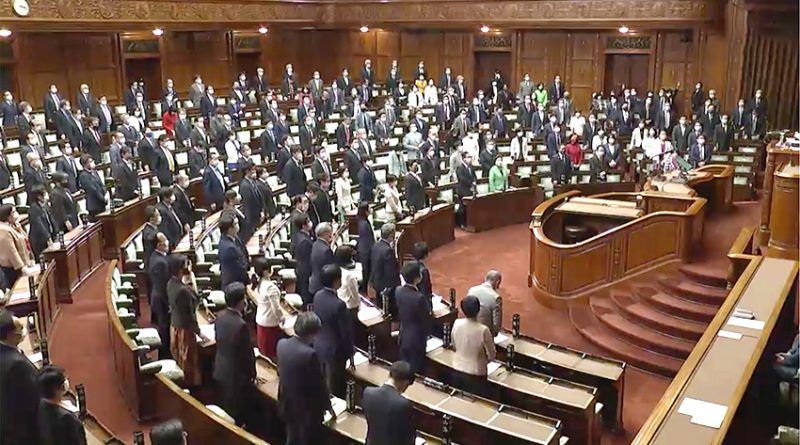
The Japanese cooperative movement celebrated a historic win with the unanimous adoption of a worker cooperative law by the National Diet on 4 December.
Japanese cooperators, particularly the Japan Workers’ Cooperative Union (JWCU), have campaigned for more than 30 years for the law, which will enable businesses to register as worker cooperatives. Prior to its adoption, Japan had no specific legal form for worker cooperatives, which had to register either as non-profit organisations or small and medium enterprises.
“Today, we live in the midst of unease and confusion to which no end is in sight, amid the global COVID-19 pandemic,” said Nobuhiro Furumura, chair of JWCU and board member of the International Organisation of Industrial and Service Cooperatives (CICOPA). “I cannot help but think that the enactment of the Workers' Cooperatives Act in Japan under such conditions was somehow inevitable. I see the Act as being intended not merely to establish a way of cooperative but to take on the challenge of returning to the essential fundamentals of society: self-governance, human rights, and democracy.”
ICA President Ariel Guarco congratulated the Japan Cooperative Alliance and the Japan Workers’ Cooperative Union (JWCU) for their campaign.
He said in a letter to Toru Nakaya, President of the Japan Cooperative Alliance (JCA): “This success is greeted as a joint ‘victory’ of JWCU and JCA. This new law celebrates both the unity and the diversity of the cooperative movement in Japan, which has no law covering the entire cooperative sector. The win is a historic one, as it will contribute to strengthening existing cooperative laws [and] to protecting, preserving and developing the cooperative model in Japan. I believe that as long as there are cooperators who are convinced, committed and involved in Japan and worldwide, the voice of the cooperative movement will be heard, weighed, and respected by decision-makers at national and international levels.”
CICOPA said: “This historic development paves the way for revitalisation of worker cooperatives and grants a new kind of autonomy to workers in Japan who are now empowered to invest and manage their own cooperative enterprises. A number of industries key for Japan, including ageing, childcare and support industries to agriculture and forestry, will be directly benefited.”
Yuzo Nagato, ex-president of the JWCU, added: "This law is revolutionary in the sense that it allows workers to unite and organise their worker cooperatives in order to contribute to the realisation of sustainable and vibrant communities. This ethos of the law is clearly enshrined in its first article. I hope it will be read by many members of worker cooperatives across the world."
The newly passed Act consists of 171 articles, and it was written with a high level of labour standards in mind. Its main ambition is to provide the necessary legislation to worker cooperatives. By having proper recognition, they are able to promote employment opportunities through the cooperative values, including democratic member control, and member economic participation. This in turn, will enable the newly established cooperatives to meet diverse demands in local communities, which ultimately contribute to their development and growth.
Read CICOPA’s report here.




